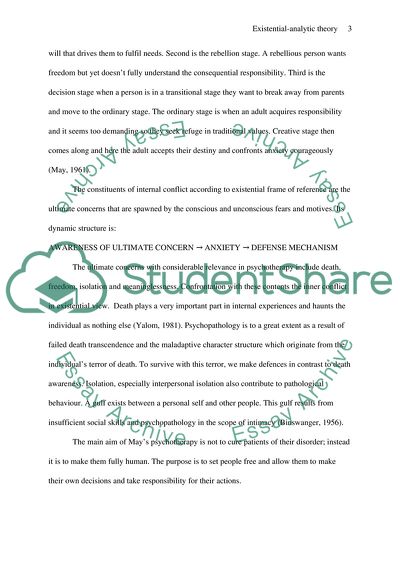ROLLO MAY-existential analytic theory Assignment. Retrieved from https://studentshare.org/psychology/1623622-rollo-may-existential-analytic-theory
ROLLO MAY-Existential Analytic Theory Assignment. https://studentshare.org/psychology/1623622-rollo-may-existential-analytic-theory.


